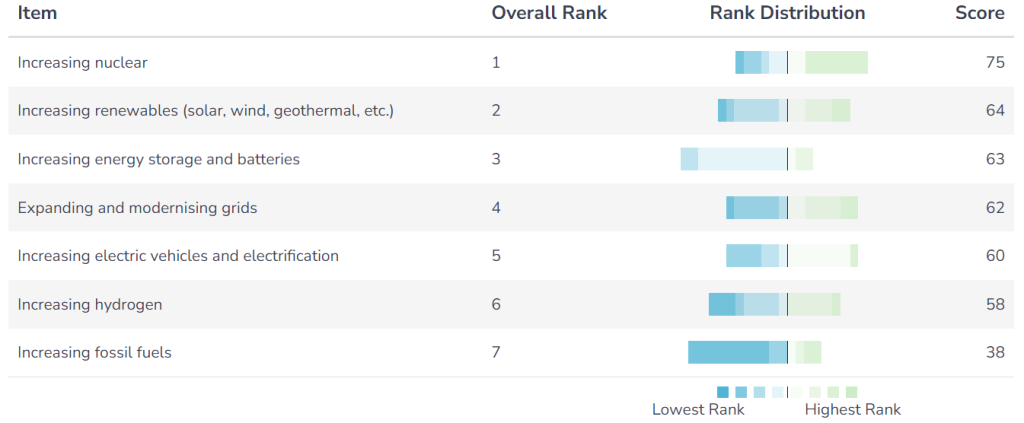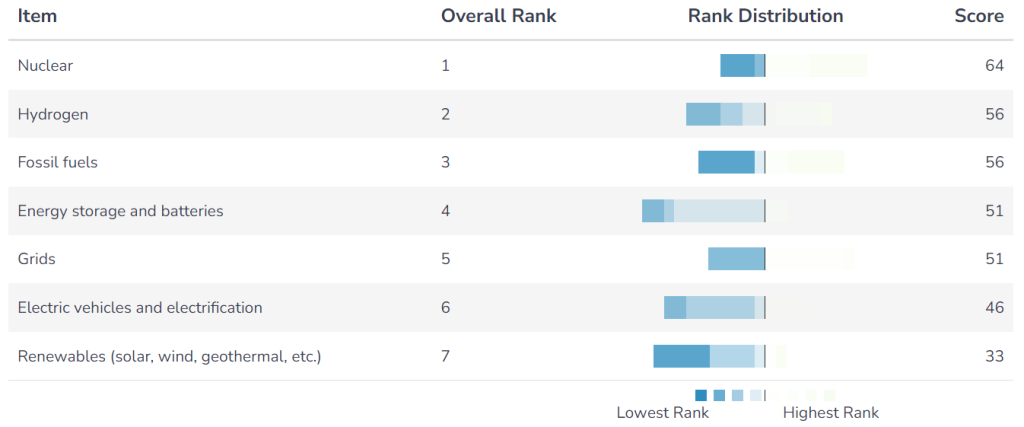A recent survey conducted by Power Technology’s parent company, GlobalData, demonstrated the energy industry’s desire for the new UK Government to push for nuclear, while also expecting hurdles along the way.
The survey, circulated to members of the industry ahead of the UK general election held on 4 July, gauged their take on the implications of a new government for the country’s power sector, including expected and desired outcomes.
Affordability and security trump sustainability and resilience
Affordability ranked as the highest priority for power among industry participants, underscoring the pressing need for energy policies that address the volatility in energy prices seen in recent years.
“Affordable power is ranked the highest since we have been witnessing constant increases in electricity bills across the world,” says Harminder Singh, director of power research and analysis at GlobalData.
He adds: “Recent geopolitical developments such as Russia’s invasion of Ukraine saw a sudden decline in gas supply that led to high fuel prices, which in turn impacted the end-consumers’ electricity bills.”
A close runner-up was securing reliable and uninterrupted power supply. “Such geopolitical events also showed how dependent countries were on energy imports,” says Singh, claiming that the responses “highlighted industry’s emphasis on energy security”.
Likewise, the survey responses aligned with the notion that energy security is a cornerstone of stable, affordable energy prices.
Generating power from low-carbon or clean energy sources ranked third, reflecting a significant, yet limited, interest in sustainability. Lastly, making power smarter and more resilient through digitalisation, ranking fourth, was seen as less of a priority for the power sector.
Nuclear dreams and controversies
When asked about hopes for the new parliament’s priorities around the power sector, increasing nuclear power production came out on top, reflecting industry’s belief that nuclear power is the UK's route to affordable electricity prices and energy security.

“Due to the upheaval in the fossil fuels market, specifically gas-based power, nuclear power is being seen as a very important alternative to ensure energy security. Historically, the sector has been bogged down by time and cost overruns. However, it is increasingly being viewed as a good option for fulfilling energy security needs,” says Singh.
Singh adds that “small modular reactors (SMRs) are expected to play an important role in the growth of the sector”.
Simultaneously, however, the survey revealed that nuclear will also likely be the most controversial topic within the new parliament, reflecting its divisive nature and the complexity of its implementation.

“Nuclear is ranked at the top here due to the long gestation period and high cost associated with this power generation technology. The country has seen the challenges of nuclear such as the cost escalation and time overruns associated with the Hinkley Point C project,” says Singh.
The controversies to come were foreshadowed in the political parties’ manifestos this year, with the Conservatives and Labour outlining plans to expand nuclear while the Greens advocated for its phase-out.
Labour’s way forward
When asked which party is most likely to push for improvements to the UK’s power sector, 44.4% of respondents believed the Labour Party will lead in this effort.

Singh says: “Most respondents feel that the Labour Party will push more than other parties for improvements in the sector because of the party’s detailed emphasis on power sector reforms in its manifesto. The party has mentioned the issues bogging down the power sector in the country and the steps it would take to tackle these. The manifesto addresses everything from stringent regulations to fuel sources of focus, grid interconnection and power bills, and so on.”
Considering the responses that point to a desire to develop the UK’s nuclear sector, it is likely that industry is pleased with Labour's victory this year.
In addition to detailed plans in its manifesto to improve and expand the country’s nuclear industry, party leader Keir Starmer has described the energy source as a “critical part” of the country’s energy security – another priority for industry, according to the survey.
However, if the new Labour Government is to push forward with its promised nuclear agenda, it is crucial that it proceeds with caution and pragmatism.
For instance, think tank Chatham House recently reported that the nuclear industry is particularly vulnerable to cybersecurity threats. Yet, with industry trivialising – as the survey revealed – "modern power” such as digitalising processes to make power systems more resilient to such threats, a hasty expansion of nuclear could lead to dire consequences such as those seen in the Sellafield cyberattack debacle.









